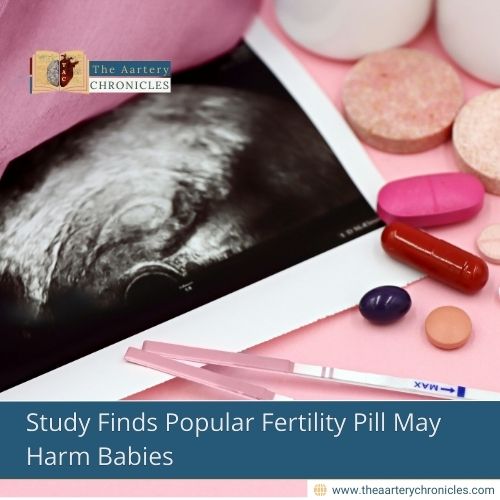

Study Finds Popular Fertility Pill May Harm Babies
A new study has raised alarms about the potential risks of using dydrogesterone, a hormone medication commonly prescribed during early pregnancy and in fertility treatments. Researchers found that babies born to mothers who took dydrogesterone may have a higher chance of birth defects, especially heart defects and male genital abnormalities such as hypospadias.
What Is Dydrogesterone and Why Is It Used?
Dydrogesterone is a type of progestin—a synthetic hormone similar to the body’s natural progesterone. It is often used in assisted reproductive technologies (ART), such as IVF, to help support early pregnancy. It is taken orally and has been viewed as a more convenient alternative to vaginal progesterone.
The Study: What Did Researchers Find?
The research, led by Dr. Alexandra Henry and her team at Université Paris Cité, examined safety data from the World Health Organisation’s global pharmacovigilance database (VigiBase). The team focused on pregnancy-related reports up until December 2021 to investigate whether dydrogesterone might be linked to an increased risk of birth defects.
Key Statistics:
- Over 362,000 pregnancy-related safety reports were reviewed.
- 50,653 of these involved fertility medications (ART drugs).
- 145 reports were linked to dydrogesterone, and 1,222 to natural progesterone.
- Among these, 60 birth defects were linked to dydrogesterone and 141 to progesterone.
- The most common defects associated with dydrogesterone were congenital heart defects and hypospadias.
How Big Is the Risk?
Using a statistical method called disproportionality analysis, researchers compared how often birth defects were reported with dydrogesterone versus other fertility medications:
- Dydrogesterone was linked to more than 5 times the risk of birth defects compared to other medicines.
- The risk was also six times higher when compared specifically to other ART drugs.
- Even when compared only to progesterone, dydrogesterone showed a 5.4 times higher risk.
These results were consistent even after adjusting for other factors.
Limitations
- Not all adverse events are reported, so the true numbers may differ.
- Causation can’t be confirmed from this type of data alone.
Still, the strong and repeated pattern of findings suggests that dydrogesterone may not be as safe as once believed, especially when used during early pregnancy.
What Does This Mean for Women and Healthcare Providers?
- A careful reassessment of dydrogesterone’s use during pregnancy.
- More research is needed to better understand the risks to unborn children.
- A priority on ensuring the safety of both mothers and their babies, particularly when using hormone support during fertility treatments.
Conclusion
While dydrogesterone has been considered effective for supporting pregnancy, this new research suggests it may carry a higher risk of birth defects compared to other options like progesterone. Until more is known, healthcare providers may want to reconsider its routine use, especially during the earliest and most critical stages of pregnancy.
Source: Inputs from various media Sources

Priya Bairagi
Reviewed by Dr Aarti Nehra (MBBS, MMST)
I’m a pharmacist with a strong background in health sciences. I hold a BSc from Delhi University and a pharmacy degree from PDM University. I write articles and daily health news while interviewing doctors to bring you the latest insights. In my free time, you’ll find me at the gym or lost in a sci-fi novel.








